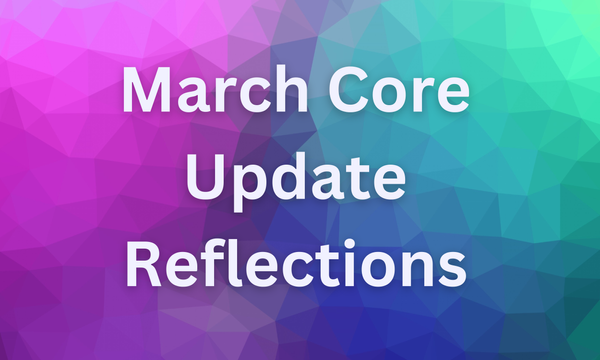The Evolution of SEO

Introduction:
Over the past 25+ years, SEO has undergone significant changes, from simple keyword matching tactics in the 1990s to the complex ranking systems powered by artificial intelligence that we see today. SEO best practices have evolved over time to align with regular search engine algorithm updates.
In this post, we will explore the key milestones in the history of SEO and how tactics have transformed over the years. We will also look at current best practices and speculate on where SEO might be headed in the future as technologies like AI and machine learning advance. For marketers who want to succeed with search engine optimization, understanding the evolution of SEO and staying up-to-date is crucial.
The Wild West Years (1990s)

In the early days of the internet, search engines were still in their infancy. Website owners realized they could gain traffic by optimizing their sites using basic techniques that worked with the more primitive search engines. This ushered in an era of "keyword stuffing" where sites would cram as many keywords as possible onto their web pages in hopes of ranking for those terms, and it worked. The philosophy of "more keywords is better!" is still prevalent today, though very incorrect.
Webmasters would also abuse meta tags by stuffing meta keywords and descriptions full of popular search terms, trying to fool search engines into thinking their site was relevant. Other shady tactics were also common, like building "link farms" with thousands of sites all linking back to each other in hopes of artificially inflating search rankings.
While search engines like Yahoo, Excite, and AltaVista were gaining popularity with internet users, their algorithms were not yet advanced enough to provide the high-quality search results we see today. However, the SEO Wild West period did not last long as search engines quickly evolved to penalize over-optimization and reward sites with genuine, relevant content.
The Rise of Google and Link Building (2000s)

As internet usage exploded in the early 2000s, Google emerged as the dominant search engine thanks to its revolutionary PageRank algorithm. PageRank analyzed incoming links to determine the importance of a web page, unlike earlier search engines that simply matched keywords.
Site owners realized that links were now crucial for rankings, ushering in an era obsessed with link building. Webmasters exchanged links, purchased links from link farms, and built private blog networks to try and manipulate PageRank. However, advances in Google's algorithms began penalizing over-optimization, and keyword stuffing still ran rampant through the early 2000s.
Spammers and black-hat SEOs developed an array of tactics to try and game Google's systems, from hidden text and links to doorway pages optimized for specific keywords. In response, Google released major algorithm updates like Florida and Google Panda to demote low-quality sites engaged in manipulative practices. The battle between Google engineers and SEOs drove innovation on both sides.
Though link schemes and keyword stuffing could still provide temporary gains, sites focused on creating high-quality, engaging content for users began to see the best long-term rankings. As search engine technology matured, legitimate optimization strategies like quality link building and semantic keyword research became more important. SEO was increasingly becoming a science of understanding and aligning with search engine goals, but vestiges of the "wild west" era remained.
Exploring the Nuances of 2010s - 2015

2010s: The Dawn of Content is King
The 2010s marked a new era in search engine optimization (SEO) where content became the focus. Website owners had to shift their approach as search engines like Google updated their algorithms to target low-quality sites that stuffed keywords and built sketchy link networks.
Instead of manipulating keywords, the focus shifted to creating high-quality, useful content that genuinely meets user needs. Long-form educational articles and storytelling became popular ways to earn rankings while also building user trust.
However, this shift gave rise to the overproduction of mass-produced content through content spinning tools and unsophisticated AI-like programs. Google now relies on machine learning and AI to parse pages similar to a human. Creating the best user experience is king in modern SEO.
Mobile Optimization
The rise of smartphones pushed website owners to ensure that their sites provided an excellent user experience on mobile screens. Google updates like Mobilegeddon and Mobile-Friendly emphasized mobile optimization as a ranking factor. Accelerated mobile pages (AMP) also emerged as a way to create incredibly fast landing pages tailored for phones.
Technical SEO Gains Traction
While content remains essential, modern SEO also requires deep technical expertise. Search engines now emulate human perceptions, and factors like site speed, structured data, security, and page performance are growing in influence. Voice search brings its own technical considerations as well around site indexing and speech recognition.
2015-2020: Refining the SEO Framework

As search engines matured into sophisticated information curators, SEO practices responded with greater emphasis on quality, expertise, and transparency. Google’s focus on evaluating expertise, authoritativeness, and trustworthiness (EEAT) required marketers to better understand searcher intent and provide in-depth, accurate information.
Mobile-first indexing led to fully responsive site design and content tailored for smaller screens.
Multiple Google algorithm updates targeted low-quality content farms, rewarding sites producing valuable, engaging information.
Local SEO grew crucial for businesses with physical locations, and optimizing Google My Business listings and reviews became vital to getting discovered locally.
In essence, the frameworks developed over 2015-2020 emphasize expertise, technical prowess, and understanding user intent as the prime drivers of SEO success, where marketing jargon and gimmicks faded away, and search engines focused solely on the user.
2020-Present: The Intelligent Search Era

Modern search engines have evolved to use advanced AI to analyze content, understand user intent, and provide relevant results in real-time. Some of the latest developments include:
- Entity-based search, which recognizes people, places, organizations, and other distinct information entities, rather than just keywords. Having comprehensive strategies focused on targeting and optimizing for entities is now crucial.
- The Core Web Vitals update measures page experience metrics such as loading speed, visual stability, and interactivity. Poor performance leads to lower rankings, as site quality has a direct impact on user experience.
- Algorithms like BERT and MUM utilize deep learning to analyze language in a way that is more similar to how humans perceive it. They can understand context and intent with higher accuracy. Therefore, it is crucial to create content that aligns with subtle searcher motivations.
- Multimodal search incorporates images, videos, and visual information in addition to text content. Optimizing for visual search is now vital to improve visibility and click-through rates.
- There is also a greater focus on security, privacy, and transparency in SEO. User trust is paramount, and regulations such as GDPR influence how search engines handle personal data.
The field of search engine optimization (SEO) has come a long way from the days of rudimentary keyword matching. It is now a robust framework harnessing technology to unlock relevance, intent, and context. The future of SEO lies in building strategies aligned with constantly evolving search intelligence.
SEO: The Winding Road of Relevance

Over its history, search engine optimization has transformed dramatically - from rudimentary keyword matching to advanced machine learning algorithms. Strategies focused on gaming the system have given way to a framework centered on the search user.
The wild west era of keyword stuffing seems almost quaint compared to the sophistication of modern search. Google now relies on AI and neural networks to parse pages with human-like comprehension of meaning and intent. Meanwhile voice assistants understand natural language, and visual information plays a bigger role.
Yet while tactics have evolved enormously, the heart of SEO remains unchanged - connecting people to relevant information at the exact moment they seek it. The winding road of progress has led search engines to focus on relevance over everything else.
Looking to the future, SEO will continue advancing in lockstep with machine learning to uncover relevance amidst the noise. No matter how sophisticated search algorithms become, aligning quality content with user intent will remain the North Star guiding websites to discovery and trust.
The decades have shown search engines often develop in unexpected ways. But as long as people explore the internet for answers, SEO will retain its human core - understanding needs, building connections, and empowering journeys of learning.




